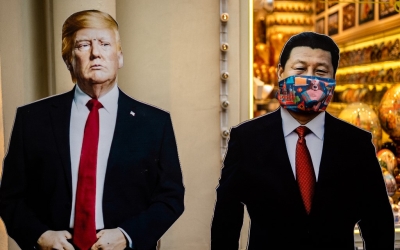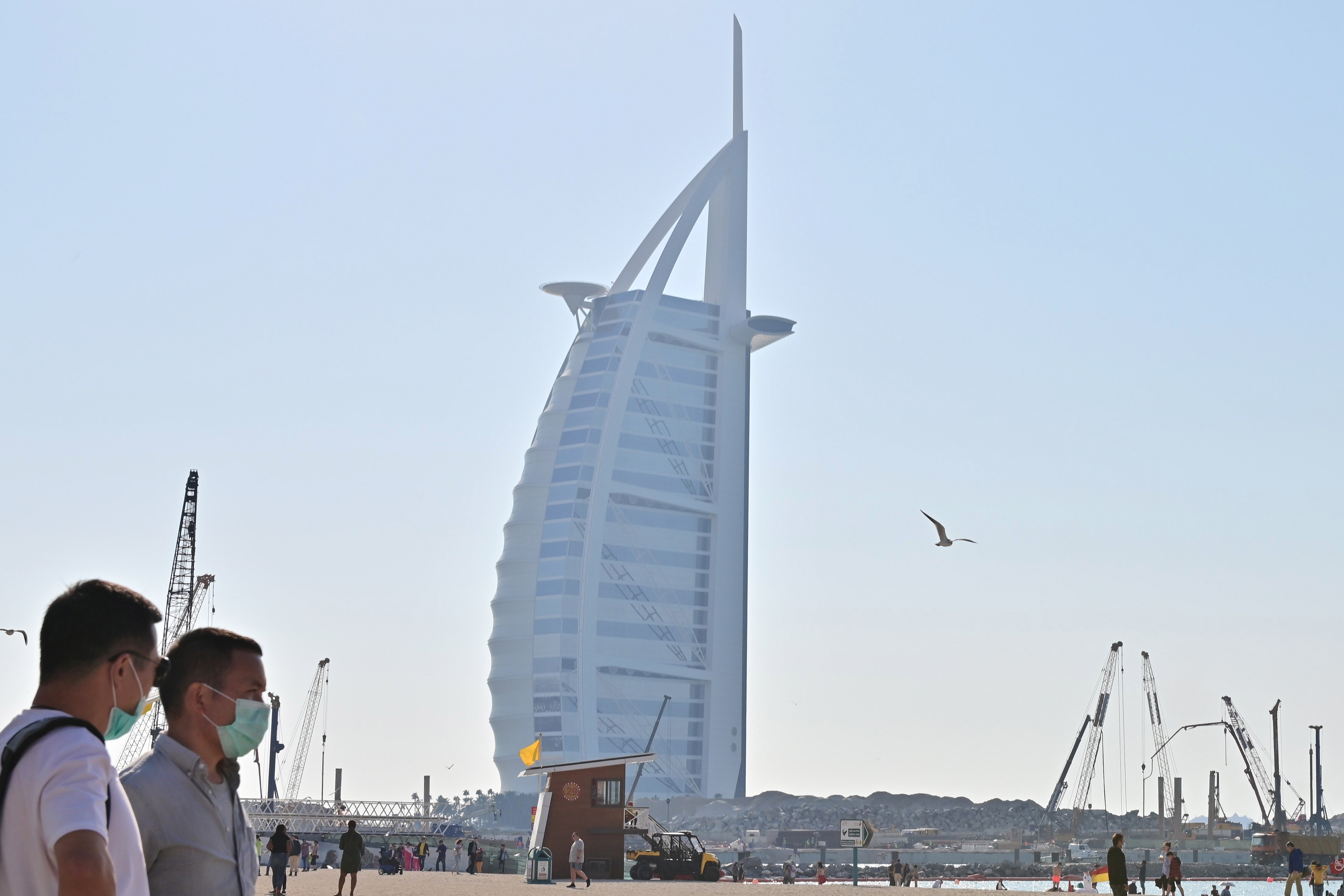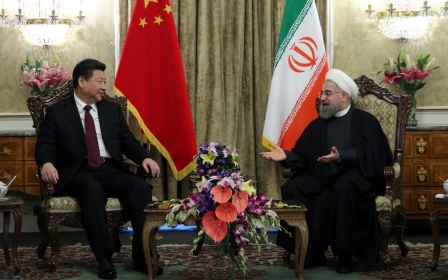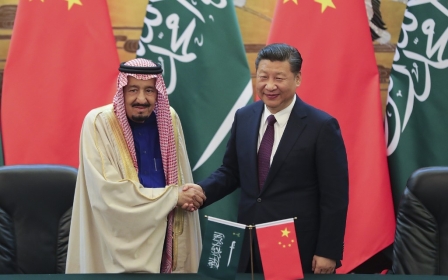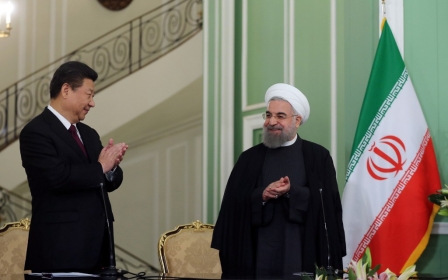The UAE's tilt to China
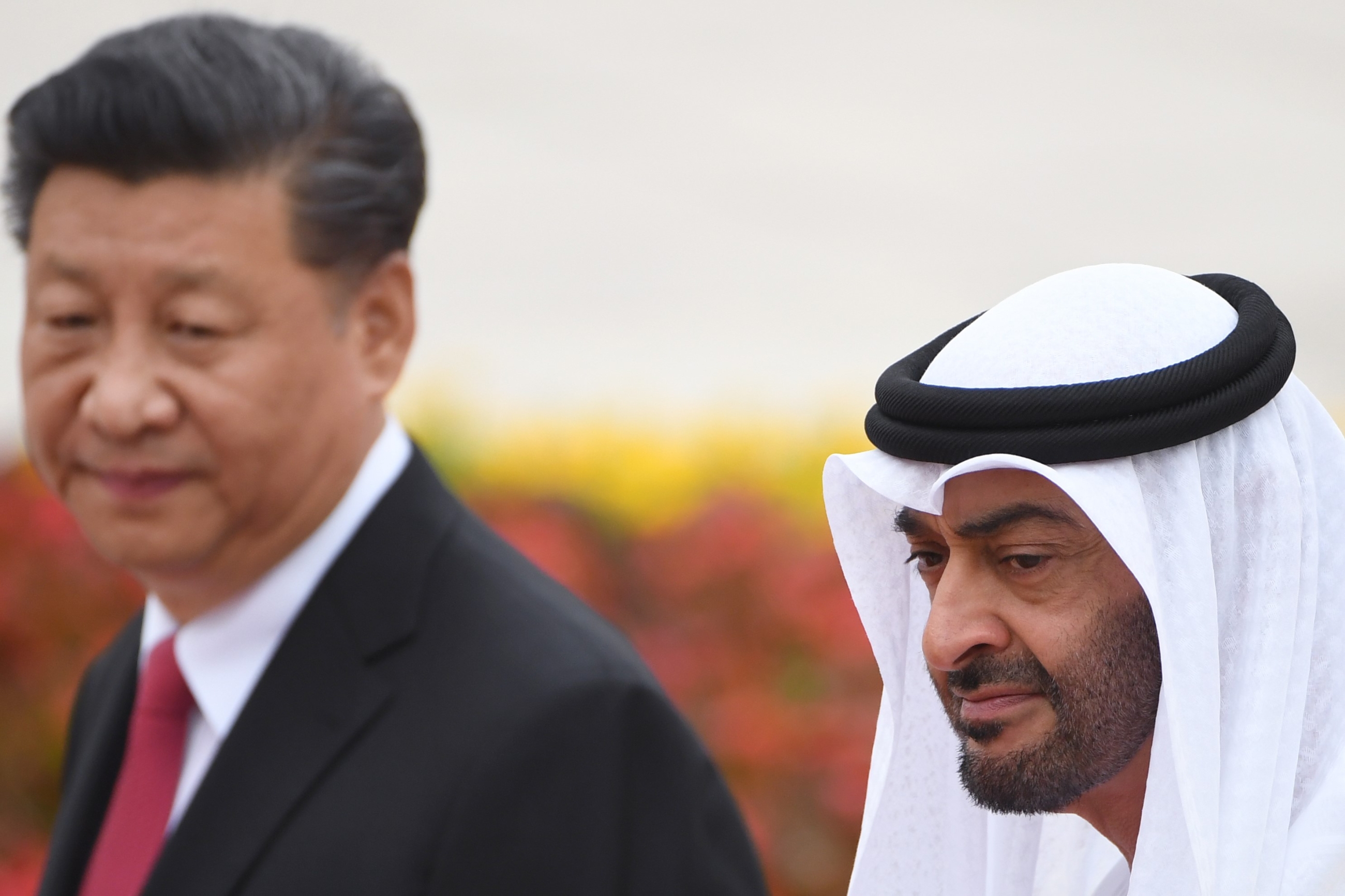
The Middle East finds itself quite literally in the middle of the new superpower standoff between the United States and China.
Amid the American pivot towards Asia, many Middle Eastern states re-evaluated their position within an increasingly multipolar geo-strategic context where the old accepted certainties of unconditional American protection and support, could no longer be taken for granted.
New MEE newsletter: Jerusalem Dispatch
Sign up to get the latest insights and analysis on Israel-Palestine, alongside Turkey Unpacked and other MEE newsletters
In particular the Arab Gulf states have since conducted their own pivot to Asia with China becoming an ever more important partner for Kuwait, Saudi Arabia, Qatar, the United Arab Emirates (UAE) and Oman.
The US' partners in the Gulf were particularly alarmed by former US President Barack Obama’s apparent softening of commitment to Gulf security following his withdrawal from Iraq and Afghanistan, fearing that Washington would attempt to buy calm in the Middle East through an "imperfect deal" with Iran that would favour Tehran over the Gulf Cooperation Council (GCC) states.
Whether in Syria, Libya or in the Arabian Gulf itself, President Trump has delivered little more than rhetoric. His personal aversion to being dragged into another forever war in the Middle Eastern quagmire has translated into lukewarm American responses to clear Iranian attacks against hydrocarbon and trade infrastructure in the Gulf.
President Trump’s election in 2016 raised hopes in the Gulf that the US would return to the region in a more assertive manner, confronting the Arab Gulf’s old nemesis, Iran, head on - hopes that were quickly shattered. Washington’s policy towards the region was more characterised by erratic impulsiveness than sober strategy.
Not least the almost absent US response to the Iranian attacks on Saudi oil facilities a year ago, impressively drove home the need for all Arab Gulf states to become more self-sufficient and diversify their extra-regional partnerships.
As a consequence, the era of bandwaggoning along America’s regional leadership has come to an end in the Gulf, being replaced by a new era of geostrategic hedging.
For now, China is still far from being able to provide the sort of defence umbrella that the United States has provided in the Gulf.
Chinese 'soft power'
But China offers certain soft power appeals to America’s partners in the Gulf that in a first instance might only see a diversification of trade links, but further down the line offer opportunities for partnerships in the information domain that might be far more important for regime security than America’s military presence in the Gulf – as the case of the UAE exemplifies.
While all GCC states have tried to benefit from China’s ambitious One Road One Belt Initiative (BRI), trying to integrate their hydrocarbon and trade infrastructure into the Chinese masterplan, the UAE have arguably become one of the most important and strategic partners of China in the region.
As a regional trade hub and major oil exporter to Asia, the UAE has diversified earlier toward China than others in the Gulf. Its mercantile grand strategy of controlling access to key maritime checkpoints in the Indian Ocean, the Horn of Africa and the Red Sea, made Abu Dhabi an important partner for Beijing.
While the United States remains the security partner of choice for the UAE for the time being, there are several indicators that suggest that Abu Dhabi’s hedging with China far exceeds synergies that other Gulf states have found with Beijing. Especially in the realm of information power and internal security, China is leading the way in the UAE.
Ideational synergy
As a poster child of 21st century authoritarianism, the tribal monarchy seems to learn a lot from the Chinese surveillance state.
As a poster child of 21st century authoritarianism, the tribal monarchy seems to learn a lot from the Chinese surveillance state
Beijing has become a role model for Abu Dhabi to remote control the public through surveillance and monitoring tools relying on artificial intelligence and big data exploitation.
With major Chinese players in the AI field setting up R&D labs in the UAE, it is not surprising that the Emirati Covid-19 response, which relied on tracking and tracing the transparent citizen, was closely aligned with that of China.
Hence, while many analysts might reduce the UAE’s security partnership with Beijing to a few Chinese attack drones, they are missing the point that it is in the field of information technology and data exploitation that the security partnership between Abu Dhabi and Beijing is growing in strategic depth.
As authoritarian political synergies are most likely to increase at a greater pace with China in the information age than with the United States or Europe, Abu Dhabi’s ascent as a regional information power will inevitably rely more on Beijing than Washington.
Zero-sum game
Amid the ongoing standoff between the United States and China, therefore, the UAE will find itself increasingly under pressure if President Trump gets another four years in the White House.
With Iran sanctions already back in place, a US State Department official tells me that Washington is probably going to increase pressure on its partners in the Gulf to sever relations with Beijing moving forward in 2021 – particularly in non-hydrocarbon-related domains.
Having delivered the White House a foreign policy victory with the Abraham Accords, Abu Dhabi needs to be wary that its credit in Washington could quickly run low, once the zero-sum game with China goes into the next round after the election.
The views expressed in this article belong to the author and do not necessarily reflect the editorial policy of Middle East Eye.
Middle East Eye delivers independent and unrivalled coverage and analysis of the Middle East, North Africa and beyond. To learn more about republishing this content and the associated fees, please fill out this form. More about MEE can be found here.



